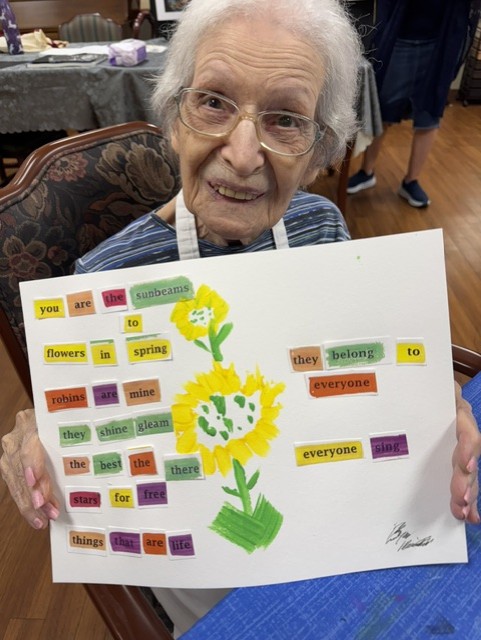In addition to moving from winter into spring and from Lent into the Easter season, we also recently have moved through another season: the awards season that began with the Golden Globes and concluded for the movie industry with the Oscars. In the midst of these better-known awards shows, there is another ceremony that receives less attention and less fanfare, but which is interesting in its own right: The AARP Movies for Grownups Awards, which are for films about aging and are created by people who are aging.
Films about Aging
AARP began giving these awards in 2002. One of the reasons for giving these awards is to lift the accomplishments of older individuals who help to disrupt the way we think about aging. “They are living proof that aging can be a time of continuous growth and creativity, not a period of decline, as we have been led to believe throughout our lives. We don’t just ‘get older,’ we ‘grow older,’ and in doing so we become the person we always wanted to be,” according to the Milken Institute. Seventeen years ago, no one was paying much attention to either the telling or making of stories about people and characters who were over the age of 50. And although this challenge continues today, there are a few more options for our viewing pleasure.
Film Stars Don’t Die in Liverpool
Consider one of this year’s nominees for best movie, Film Stars Don’t Die in Liverpool starring Annette Bening. The movie centers around 54-year-old Gloria Grahame, the actress who was working in the late 1970s in small theaters in England after years of success in Hollywood and three failed marriages. The setting of the film travels back and forth through the years of her relationship with Peter Turner, an actor 28 years her junior from Liverpool. Their on-again, off-again relationship comes back into focus in the film when she asks to stay with Peter at his family’s home. The family learns that Gloria’s breast cancer has returned and they struggle with the disruption of her presence in their home and their lives. It is their compassion that welcomes her in and, as Frank Cottrell Boyce observes, their decency “to refuse to let someone die alone. That decency that makes us great by insisting that we meet the challenge set by the needs of others” which provides the center of the film.
Gloria was a woman who struggled with her own understanding of aging. She portrayed brassy floozies on the screen. Her personal life was not devoid of its own conflict, which she had to face in her relationships with her own children and family. She would become angry with Peter if he made any mention of the differences in their own ages or suggested that she was “old” or “older.” In the film we see a bit of her conflict in facing her own mortality even as the reality of her imminent death is reluctantly dawning on Peter. And for film stars, the reality of mortality is complicated even as we continue to be able to see the body of their life’s work from their younger years on film. Glimpses of Gloria’s glory days from her roles in Oklahoma!, It’s a Wonderful Life and The Bad and the Beautiful, for which she won an Oscar in 1952, are shared in the midst of this story’s unfolding.
When she first was diagnosed with breast cancer a decade before the story in the film begins, she reportedly made all kinds of changes in her own life including changing her diet and quitting smoking. So when the cancer returns, she struggles inwardly and by herself with the implications that her life was coming to an end. And ultimately, she chooses Peter and his extended family to be her community of support in her last days.
We Continue to Grow
Annette Bening won best actress from the AARP last year for her role in 20th Century Women. She commented at the time, “When I was younger, I thought there was a point in life where you sort of stopped growing and you had figured everything out. Of course, now I’m beginning to really understand life just evolves and you continue and grow.” And thankfully, Bening is able to portray roles of women over 50 who similarly wrestle with this evolution of self-understanding and growth.
And that is the point of Movies for Grownups, telling the stories of life for characters who are similarly aging by actors and actresses who likewise are finding ways to express and reflect to us the complexity of life as we age. So invite a friend or two over to stream one of this year’s nominations and reflect about how these films about aging lift up our own aging challenges and opportunities. We’ll be sharing some additional reflections on a couple of this year’s other nominees in the weeks ahead. So, stay tuned!
4/6/18 11:30
View all articles by:






















